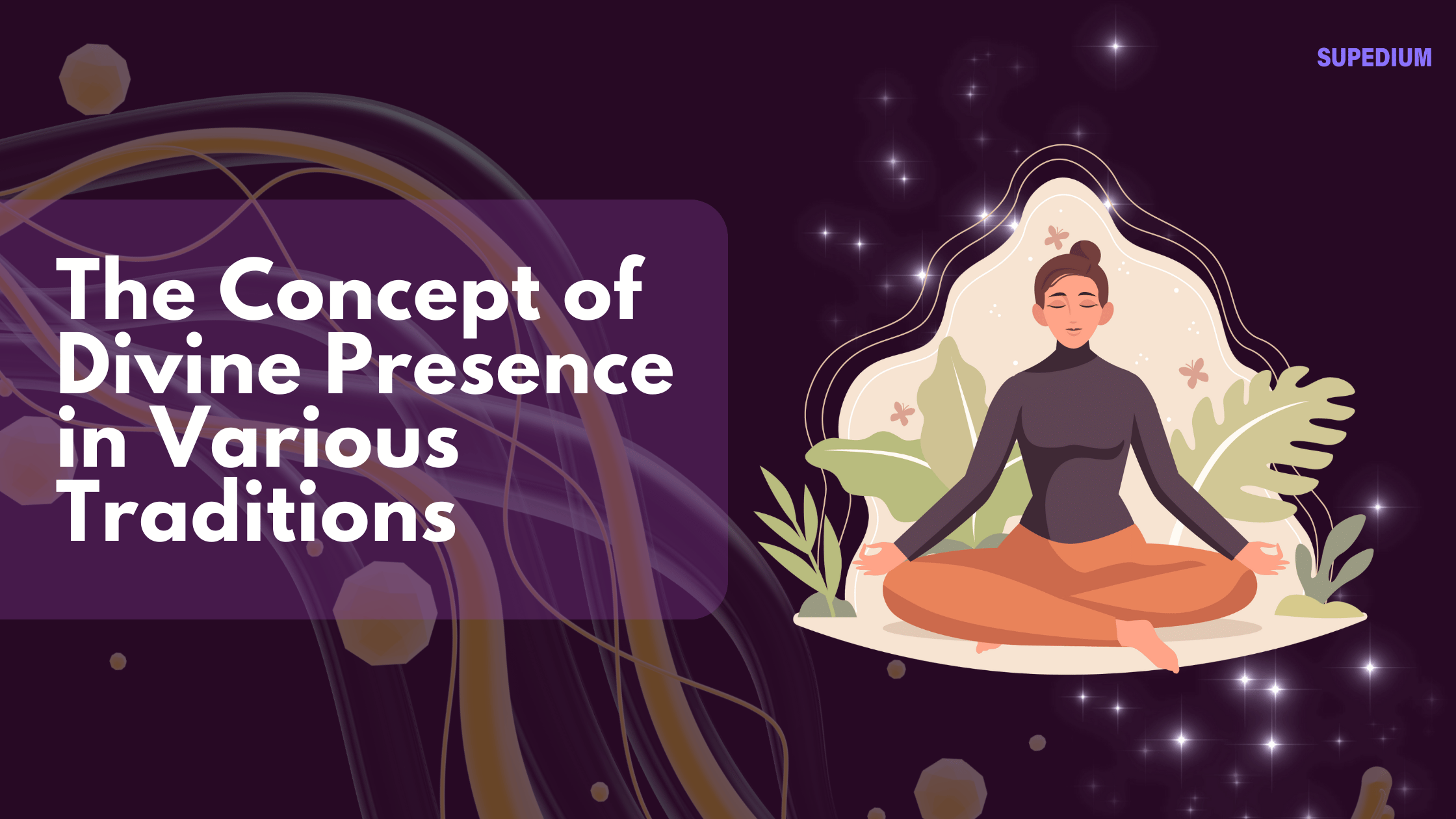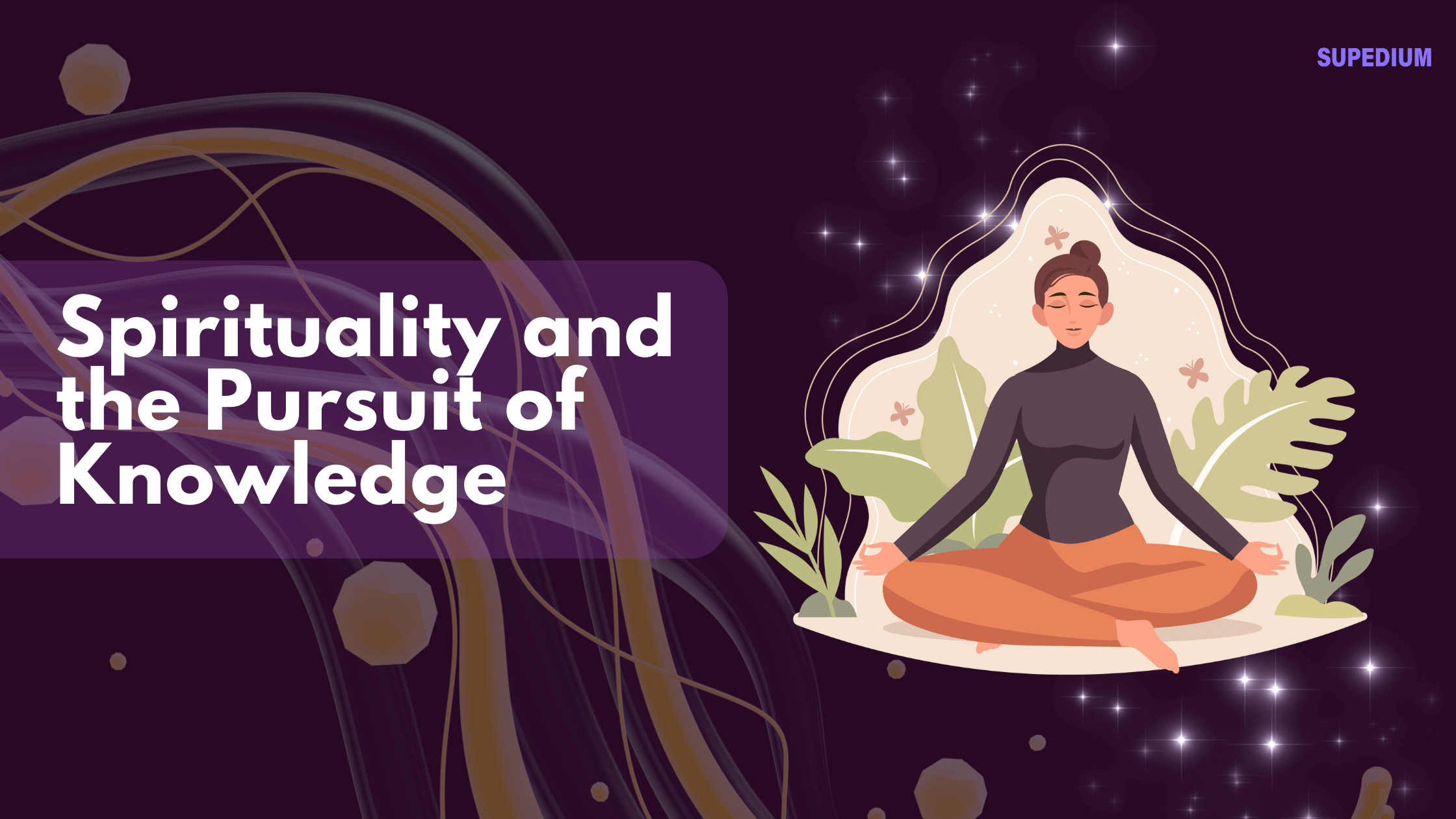Table of Contents
![]()
Introduction
The concept of divine presence pertains to the ways in which deities or higher powers manifest in the world and interact with humanity. This idea is central to many religious and spiritual practices, shaping how people experience and understand the divine. By examining diverse traditions, we can gain insights into the commonalities and unique aspects of how divine presence is perceived and experienced across cultures and faiths.
Abrahamic Traditions
Judaism
In Judaism, divine presence is often associated with the Shekhinah, which signifies God’s dwelling or presence within the world. The Shekhinah is frequently mentioned in the context of the Hebrew Bible, such as during the theophany at Mount Sinai, where God’s presence was felt through dramatic manifestations. In the mystical tradition of Kabbalah, the Shekhinah is viewed as a feminine aspect of God’s presence that connects the divine with the earthly realm. Contemporary Jewish thought continues to explore the nature of God’s presence, balancing traditional views with modern interpretations and philosophical questions.
Christianity
Christianity presents a distinctive understanding of divine presence through the figure of Jesus Christ and the Holy Spirit. The Incarnation, where Jesus is believed to be the literal embodiment of God on Earth, represents a profound manifestation of divine presence. In addition to the Incarnation, Christians experience divine presence through the Holy Spirit, who is considered to dwell within believers and guide the Church. The Eucharist, a sacrament commemorating the Last Supper, is another means through which Christians encounter divine presence, reflecting a deep theological belief in Christ’s real presence in the sacrament. Mystics such as Teresa of Ávila and John of the Cross have explored personal encounters with the divine, emphasizing direct and intimate experiences of God.
Islam
In Islam, Allah’s presence is characterized by omnipresence and transcendence. Allah is viewed as all-encompassing and beyond human comprehension, yet Muslims strive to connect with the divine through prayer, meditation, and adherence to the teachings of the Qur’an. Sufism, a mystical branch of Islam, emphasizes personal experiences of divine presence, often seeking union with Allah through practices like dhikr (remembrance) and spiritual exercises. Figures like Rumi and al-Ghazali have explored these mystical dimensions, offering insights into how individuals might experience a profound sense of divine presence.
Indian Traditions
Hinduism
Hinduism offers a multifaceted view of divine presence through its diverse deities and philosophical frameworks. Brahman, the ultimate reality, is perceived as the absolute divine presence underlying all existence. Deities such as Krishna and Rama are considered avatars or manifestations of this supreme reality, making the divine accessible in specific forms. Devotional practices, including temple worship and rituals, serve as means for devotees to experience and connect with the divine. The bhakti movement, with its emphasis on personal devotion, highlights how divine presence is intimately experienced through love and worship.
Buddhism
Buddhism does not focus on a creator deity but rather on the concept of Buddha-nature, which represents an intrinsic, enlightened presence within all beings. The absence of a personal god shifts the focus to experiencing the ultimate reality through personal enlightenment and understanding. Meditation and mindfulness are central practices in Buddhism, helping individuals connect with their own Buddha-nature and gain insight into the nature of reality. The Dharma, or teachings of the Buddha, is considered a guiding presence that leads practitioners toward spiritual awakening.
Jainism
In Jainism, divine presence is understood through the concept of Tirthankaras, who are revered as spiritual teachers and exemplars. Although Jainism does not emphasize the worship of gods, Tirthankaras are seen as embodying divine qualities and guiding souls toward liberation. Spiritual practices in Jainism focus on non-violence, asceticism, and self-discipline, with the aim of achieving liberation and experiencing the divine in a state of ultimate purity.
East Asian Traditions
Confucianism
Confucianism views divine presence primarily through the concept of Tian, or Heaven, which represents a divine moral order governing the universe. Tian is not personified but is understood as a guiding force that shapes ethical behavior and social harmony. Rituals and ceremonies are performed to align oneself with the will of Tian, reflecting a sense of divine presence in maintaining moral and social order.
Daoism (Taoism)
Daoism presents the Dao as the ultimate principle underlying and unifying all existence. The Dao is seen as an immanent presence that permeates the natural world and human life. Experiencing the Dao involves aligning oneself with its flow through practices such as meditation, Tai Chi, and living in harmony with nature. Daoist cosmology also includes various deities and spirits, which represent different aspects of the Dao and are honored through rituals and offerings.
Shinto
In Shinto, Kami are spirits or deities present in all aspects of life, including natural features, ancestors, and human creations. Kami embody divine presence and are honored in shrines and through rituals that seek to maintain harmonious relationships with them. Festivals and ceremonies celebrate the presence of Kami and foster a sense of connection with the divine through communal and personal practices.
Indigenous and Animistic Traditions
Native American Spirituality
In many Native American traditions, the Great Spirit represents a divine presence that is deeply interconnected with nature and the cosmos. The Great Spirit is often viewed as a creator or overseer whose presence is felt through the natural world. Spiritual practices, including vision quests and ceremonies, are designed to connect individuals with the divine presence and seek guidance from the spirit world.
African Traditional Religions
African traditional religions often recognize a Supreme Being who represents the ultimate divine presence, along with a pantheon of deities and ancestral spirits. The Supreme Being is usually perceived as distant but influential, while ancestral spirits play a more immediate role in the lives of the community. Rituals and offerings are performed to honor these spirits and maintain divine favor, reflecting the belief in a pervasive divine presence that interacts with everyday life.
Comparative Analysis
Common Themes
Across various traditions, there are common themes in how divine presence is conceptualized and experienced. Many traditions explore the balance between immanence and transcendence, reflecting on whether the divine is present within the world, beyond it, or both. Experiential aspects of divine presence are also prevalent, with practices such as rituals, meditation, and worship serving as means to connect with the divine.
Unique Perspectives
Despite these commonalities, each tradition offers unique perspectives on divine presence. For instance, while Abrahamic faiths often emphasize personal relationships with a singular deity, Eastern traditions like Daoism and Buddhism focus on more abstract principles or ultimate realities. Indigenous and animistic traditions highlight the importance of nature and ancestral spirits in experiencing the divine.
Conclusion
The concept of divine presence is rich and varied, reflecting the diverse ways in which humanity seeks to understand and connect with the divine. By exploring the interpretations and experiences of divine presence across different traditions, we gain a deeper appreciation of the universal quest for meaning and connection. This comparative approach not only enriches our understanding of individual traditions but also fosters greater interfaith dialogue and respect for the myriad ways in which people experience the divine.
Share This





Be the first to comment